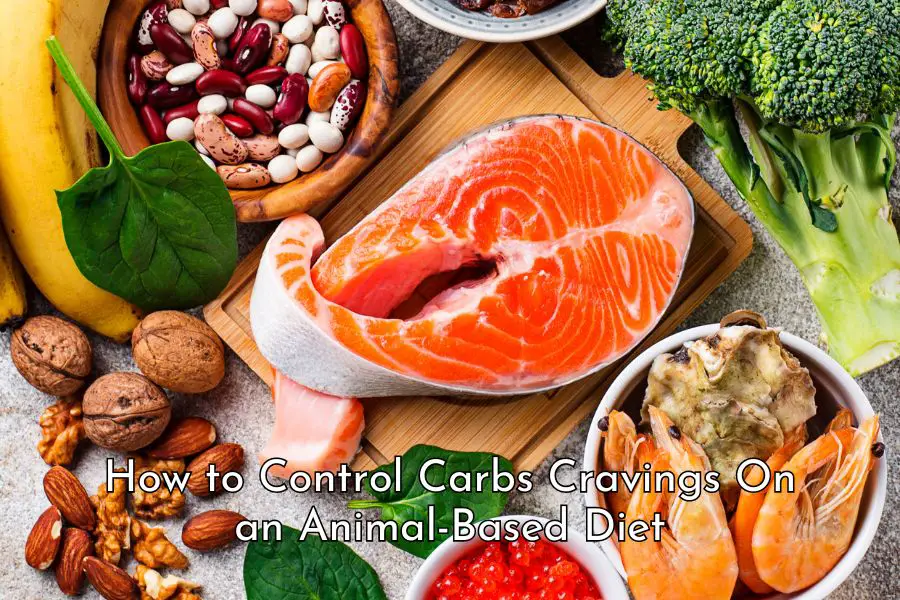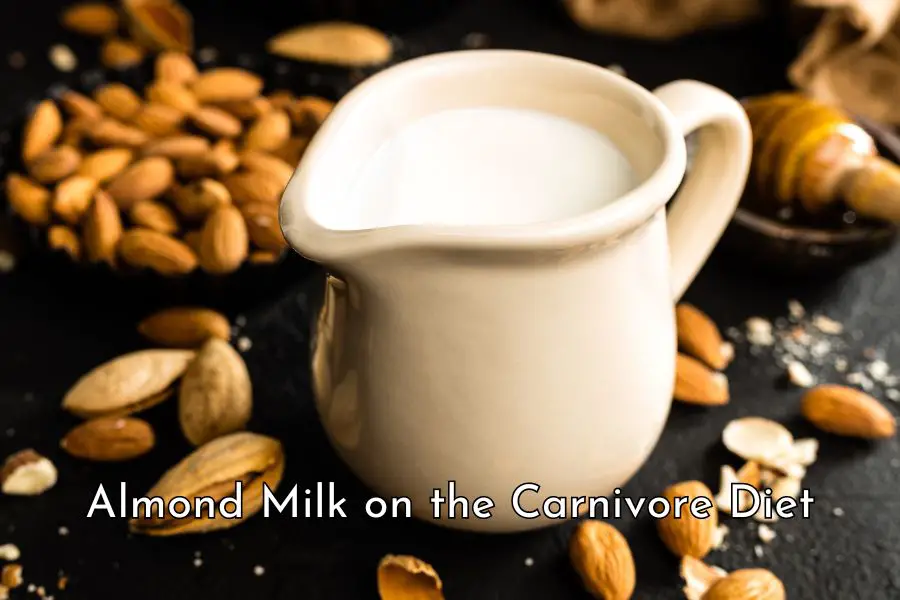Some people in the carnivore community strongly advocate taking magnesium supplements because magnesium is one of the nutrients that are very difficult to get enough of on the carnivore diet.
Based on my research, in my opinion, while animal-based food is not particularly high in magnesium, so far there is no evidence indicating that eating only food from the animal kingdom will lead to magnesium deficiency and supplementing is generally unnecessary.
If you have any concerns about your magnesium status or would like to still meet the RDAs on this diet, the best way appears to be incorporating bonemeal or soft animal bones into your diet on a regular basis.
In this post, we will look at the critical roles that magnesium plays in the human body; the recommended daily magnesium intakes and why these are generally irrelevant for people on the carnivore diet; the best animal-based sources of magnesium; and why you generally don’t need to supplement with magnesium while on this diet.
Table of Contents
- Magnesium’s roles in the human body
- Recommended daily magnesium intake
- Sources of magnesium on the carnivore diet
- Do you need magnesium supplements on the carnivore diet?
- Concerned about magnesium deficiency on the carnivore diet
Magnesium’s roles in the human body
Magnesium is an essential nutrient for the human body which cannot be endogenously produced and must be obtained from dietary sources.
Magnesium is the fourth most abundant mineral in the human body after calcium, potassium, and sodium. [1]
Magnesium plays many important roles in the normal functioning of the human body. In fact, it is involved in more than 300 biochemical processes in the body, from maintaining normal muscle and nerve function, supporting a healthy immune system, protein synthesis, energy production, and controlling blood glucose to regulating blood pressure. [2, 3]
An adult human body contains between 20 and 28 g of magnesium, of which 50-65% is stored in bones; 34-39% in muscles, soft tissues, and organs; and less than 1-2% in blood and extracellular fluids. [4]
Your body keeps tight control over the magnesium levels in the blood at around 0.75 to 0.95 mmol/L. When there is a magnesium surplus, the kidneys will excrete the excess magnesium. On the other hand, when there is a deficit, magnesium excretion through the urine will decrease significantly. In addition, the body can derive magnesium from the bones, muscles, and organs to maintain normal levels of magnesium in the blood. [5]
Magnesium deficiency is not common in the developed world but can happen in some people due to poor dietary intake, chronic alcoholism, or health conditions such as gut, kidney, endocrine, or metabolic disorders. [6, 7]
Signs of magnesium deficiency are low serum calcium status, low potassium concentrations, sodium retention, loss of appetite, nausea, fatigue, weakness, numbness, muscle spasms, abnormal heart rhythms, and personality changes. [8, 9]
Suboptimal magnesium status has been found to be associated with a wide range of chronic diseases such as diabetes, metabolic syndromes, osteoporosis, and poor cardiovascular health. [10]
Recommended daily magnesium intake
The RDAs for magnesium vary between around 300 and 400 mg/day depending on age, gender, and pregnancy status. [11]
| Age | Male | Female | Pregnancy | Lactation |
|---|---|---|---|---|
| 18 years | 410 mg | 360 mg | 400 mg | 360 mg |
| 19–30 years | 400 mg | 310 mg | 350 mg | 310 mg |
| 31–50 years | 420 mg | 320 mg | 360 mg | 320 mg |
| 51+ years | 420 mg | 320 mg |
However, like RDAs for other nutrients that have been established by the Food and Nutrition Board at the Institute of Medicine, these RDAs are set for the general population who are also recommended to obtain 45%-65% of their total calorie intake from carbohydrate sources. Hence, they may not be relevant to a subset of the population on the carnivore diet who exclude most carb-rich foods from their diet. [12]
Because magnesium is an important co-factor in glucose metabolism, naturally, the higher your carbohydrate intake is, the higher your magnesium requirement would be. [13]
If you don’t eat a lot of carbs, you likely won’t need as much magnesium as those who do.
In addition, it’s not just how much magnesium you consume that matters but how much your body can absorb as well.
On the carnivore diet, with the absence of plant-based food and its anti-nutrients like oxalates and phytates that are known to interfere with your body’s ability to absorb magnesium and other nutrients, your body can utilize the little magnesium it consumes a lot more efficiently. [14, 15]
For example, seeds, grains, nuts, legumes and green leafy vegetables like spinach are high in magnesium but seeds, grains, nuts, and legumes are high in phytates whereas spinach is high in oxalates – both of these antinutrients reduce the bioavailability of magnesium, calcium, and other nutrients. [16, 17]
There is no point in consuming nutrient-dense food when your body is unable to utilize most of the nutrients contained therein.
Sources of magnesium on the carnivore diet
Magnesium is present in most animal-based foods in varying quantities.
The table below shows the magnesium contents of over 70 animal-based foods in descending order.
| Animal-based food | Magnesium (mg/100g) |
|---|---|
| Cattle bone | 530 |
| Mackerel | 76 |
| Tuna | 50 |
| Parmesan cheese | 44 |
| Shrimp | 37 |
| Wild salmon | 29 |
| Gouda cheese | 29 |
| Lean chicken | 28 |
| Cheddar cheese | 28 |
| Atlantic salmon | 27 |
| Wild boar | 27 |
| Fish roe | 26 |
| Lean lamb | 25 |
| Chicken breast | 25 |
| Quail meat | 25 |
| Lean pork | 24 |
| Lean chicken | 24 |
| Whole milk (per cup) | 24 |
| Strip steak | 23 |
| Deer meat | 23 |
| Quail meat with skin | 23 |
| Lambs quarters | 23 |
| Ground beef (95% lean) | 22 |
| Lean beef | 22 |
| Spleen | 22 |
| Buffalo top-round steak | 22 |
| Beef spleen | 22 |
| New York Strip | 21 |
| Ground lamb | 21 |
| Ground chicken | 21 |
| Beef heart | 21 |
| Ground bison | 21 |
| Ground beef (90% lean) | 20 |
| Tenderloin | 20 |
| Mozzarella cheese | 20 |
| Camembert | 20 |
| Brie | 20 |
| Chicken thigh | 20 |
| Ground pork | 19 |
| Chicken liver | 19 |
| Lamb’s liver | 19 |
| Pork heart | 19 |
| Feta cheese | 19 |
| Ground beef (85% lean) | 18 |
| Lean pork | 18 |
| Beef liver | 18 |
| Pork liver | 18 |
| Ribeye steak | 18 |
| Chicken wing | 18 |
| Pancreas | 18 |
| Ground beef (80% lean) | 17 |
| Lamb’s heart | 17 |
| Beef kidney | 17 |
| Lamb’s kidney | 17 |
| Pork kidney | 17 |
| Chicken giblet | 17 |
| Ground beef (75% lean) | 15 |
| Chicken heart | 15 |
| Ground beef (70% lean) | 14 |
| Pork brain | 14 |
| Beef brain | 13 |
| Bacon | 12 |
| Egg | 12 |
| Lamb’s brain | 12 |
| Beef lung | 10 |
| Lamb fat | 7 |
| Pork fat | 7 |
| Chuck steak | 6 |
| Beef fat | 5 |
| Pork belly | 4 |
| Butter | 2 |
| Lard | 0 |
| Chicken fat | 0 |
| Beef tallow | 0 |
| Duck fat | 0 |
As can be seen in the above table, among commonly eaten carnivore food, seafood, cheese products, and lean meat have a higher magnesium content compared to fattier cuts of meat, organ meat, or animal fats.
Animal bone, which is rarely ever consumed, is especially rich in magnesium as well as calcium and phosphorus and an excellent source of many other nutrients. [18, 19, 20]
This is expected given bones, muscles, and organs are the main storage sites for magnesium in animals as well as humans.
If you just eat meat, organs, and fat only on this diet, you are unlikely to meet the recommended daily intake for magnesium.
For example, 2lb of beef a day will give you between 160mg to 250mg of magnesium, far less than the 300-400mg recommended by the Institute of Medicine.
A few servings of seafood a week will increase the total magnesium intake but it is still difficult for most people to achieve the RDAs.
However, despite the generally moderate magnesium content of most animal-based food, people on the carnivore diet have not been known to suffer from an increased risk of magnesium deficiency.
In a study looking at 50 subjects who were on the Paleolithic Ketogenic Diet, a high-fat animal-based diet, 49 subjects had normal magnesium levels and only one subject had a slightly lower than the normal range (0.74 mmol/l compared to the normal range of 0.75 to 1.06 mmol/l). [21]
All subjects took neither magnesium nor any other supplements and all subjects who were on a strict high-fat animal-based diet had adequate levels of serum magnesium.
Do you need magnesium supplements on the carnivore diet?
Based on the information presented above, it is very unlikely that you would need to supplement with magnesium when on the carnivore diet despite the fact that animal-based food is not particularly high in magnesium compared to many plant-based foods and is unlikely to deliver the recommended daily intakes.
This is because:
- With an extremely low carbohydrate intake on the carnivore diet, your body’s magnesium requirement is likely to be a lot lower compared to those who are on an omnivore diet which generally has a much higher carbohydrate intake
- With the absence of plant-based food and anti-nutrients like oxalate and phytates, your body will be able to absorb better magnesium from animal sources than plant sources and hence doesn’t need as much
- There is a lack of evidence that people who are on a restrictive carnivore or animal-based diet suffer from magnesium or other nutrient deficiencies.
For many years, the International Center for Medical Nutritional Intervention (ICMNI) has been using a high-fat animal-based diet to treat many chronic health conditions including diabetes, autoimmune diseases, cancer, and intestinal permeability without supplements.
In fact, in the ICMNI’s protocol, one of their first general therapeutic steps is to discontinue all dietary supplements and reconsider all existing medications.
They do not recommend taking any supplements and only in some rare cases, a one-off vitamin D supplement may be given.
However, if you have been prescribed magnesium supplements due to existing health issues (e.g. gut or kidney problems), please do consult your healthcare providers before stopping your supplements because it might take some time for your body to heal and be able to absorb nutrients efficiently again.
Concerned about magnesium deficiency on the carnivore diet
Nevertheless, if you are still concerned about your magnesium intake, the best way to address this concern is to incorporate animal bones into your diet.
As mentioned above, animal bone appears to be the most magnesium-dense source on this diet.
For example, there are 530 mg of magnesium per 100 grams of fresh cattle bone. This is comparable to the best plant-based sources of magnesium without a large dose of accompanying anti-nutrients. For example, 100 grams of pumpkin seeds and almonds respectively contain 535 and 268 mg of magnesium. [22, 23]
If you make bone broth regularly, have a small piece of the leftover soft bones a few times a week and you will not have to worry about not getting enough magnesium on the carnivore diet.
You can also make bonemeal using leftover bones from making bone broth which you can then add to many dishes like meatballs, burger patty, meatloaf, stew, or pancakes. Home-made bone meal is a great source of calcium, phosphorus, and magnesium.
Other posts you might be interested in:
Best Sources of Vitamin C on the Carnivore Diet
Is Carnivore Diet + Fruit & Honey a Good Idea?
What Is the Best Meat to Eat on the Carnivore Diet?
Best Sources of Omega 3 on the Carnivore Diet
How Much Organ Meat Should You Eat on the Carnivore Diet?
Can You Eat Only Ground Beef On the Carnivore Diet?
What Do Hardcore Carnivores Eat in a Day?
Disclaimer: The information in this post is for reference purposes only and is not intended to constitute or replace professional medical advice. Please consult a qualified medical professional before making any changes to your diet or lifestyle. Please check out our disclaimer for more detail.
Photo credit: Mind Favour





